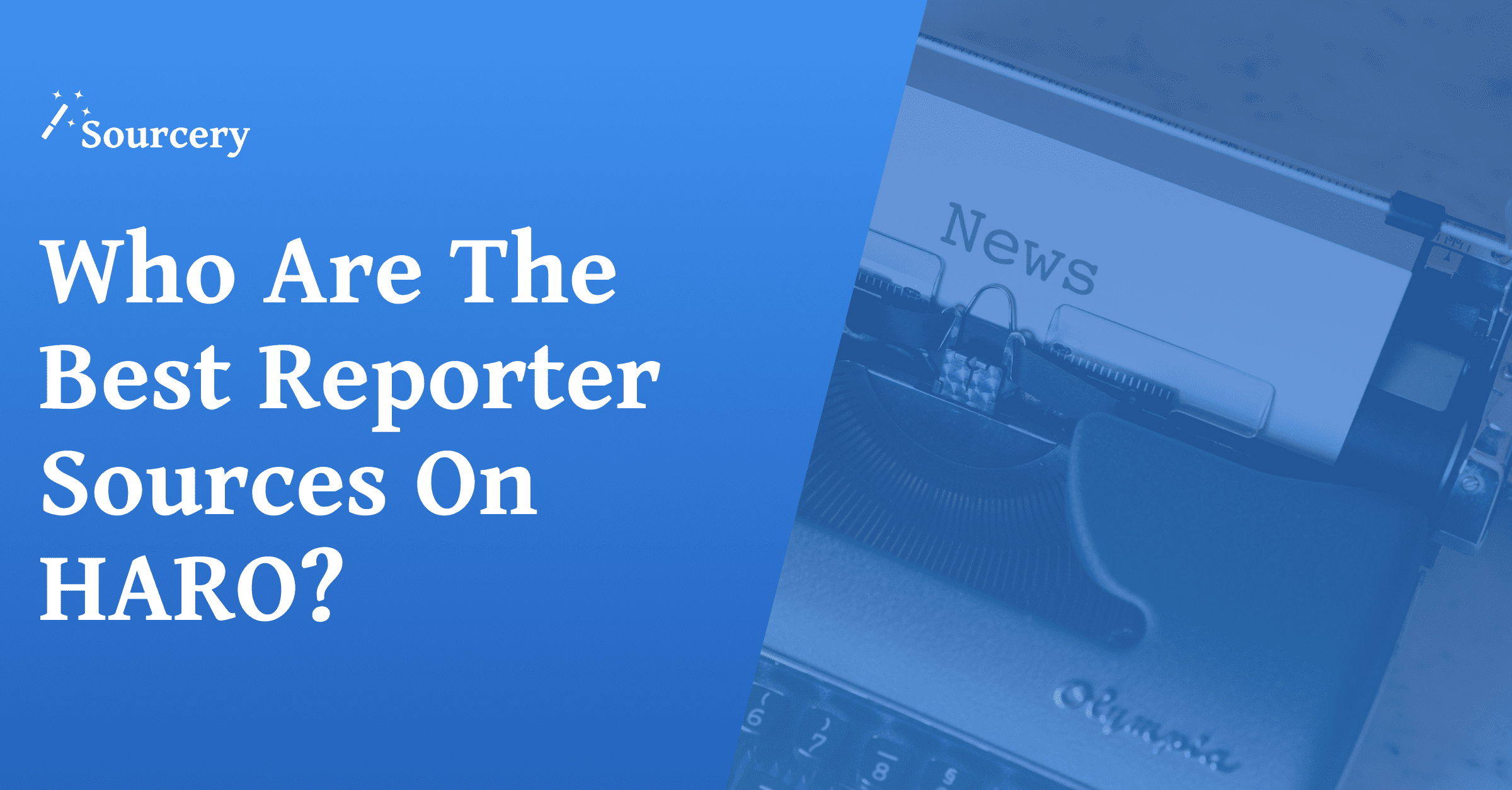Help A Reporter Out (HARO) is a great tool to find a journalist seeking expert insights to include in their content. Likewise, it helps journalists contact reporter sources who might otherwise be difficult to reach.
Media coverage through HARO is a win-win situation both for the journalist and you, the source. The reporter gets to finish a compelling story while you get positive exposure to your brand through media placements and link-building across the internet.
If you’ve been using HARO to no effect, it’s wise to learn how reporters work on the platform to increase your chances of getting acknowledged. At the same time, you should also know how to identify which outlet offers legitimate and valid media coverage.
How journalists find sources to quote lies in Google’s ranking algorithm called “EAT,” which stands for Expertise, Authoritativeness, and Trustworthiness. As long as content and SEO are concerned, EAT is an essential tool to understand how Google qualifies a high-quality webpage.
How do journalists find stories in HARO? Let’s dive deeper into the EAT framework.
Expertise
Google favors content produced by experts of whatever the subject is that a publication covers. That’s why HARO reporters need to include expert insights into their articles to add meat and value. If you’re an expert in your field, you’re more likely to become one of the best reporter sources on the platform.
It’s critical for websites offering significant advice, such as medical, financial, or legal that require formal training, qualifications, and education because their content will have a direct impact on the readers’ lives.
For some topics that require less formal qualifications, demonstrating relevant life and professional experiences would suffice. You don’t always have to have a license or degree to pass as an expert source.
Authoritativeness
The credibility of a website is also an essential factor for search engine rankings. So journalists look for sources who are recognized as an authority and a leader in their industry because they’re competent sources of information.
If you’ve been using HARO, you might have noticed that journalists will often specify their requirements to consider a source relevant. They sift through the hundreds of pitches they received every day to look for the source that qualifies certain criteria.
Now it’s important to note that some HARO journalists deemed the paragraphs about your credentials or the list where you’ve been featured as mostly irrelevant. Instead, most of them would often do a background check on the source first before responding to or using their pitches.
If you’re unsearchable on the internet or if your website doesn’t reflect your expertise, you might be skipped over. You need a solid website and build your authority. You can start by showcasing your best articles, conferences you’ve hosted or spoken at, and powerful testimonials from your customers or clients.
Trustworthiness
This refers to the audience’s level of trust in the company or the creator of the content. It’s about how transparent, accurate, and legitimate the publication is. Citing trustworthy sources also contributes to the trustworthiness of the publication, so reporters want expert sources that are credible and trustworthy.
You’re considered one of the trustworthy sources when you can provide honest, valid, and accurate information about your expertise in the subject. When you’ve established that, you may find a journalist or two who will contact you directly, especially if they have a quick turnaround because they already trust you. In essence, you become a go-to source for anything related to your field and expertise.
Well-Written
Aside from EAT, another factor in how journalists find stories lies in your sentence construction. Journalists consider a source worth quoting when their responses to their queries are well-written, easily understandable, and free of grammatical and typographical errors. Since reporters’ greatest opponent is beating the deadline, they don’t often have extra time to edit or get back to you to revise your quote.
You also need to make sure your answer is quotable. Start with a complete sentence and not just with three-word snippets. It’s always best to stick with the KISS: keep it short and simple. You also need to sound certain and confident with your expert insights.
Wrapping Up
The best reporter sources on HARO are the ones that are experts, authoritative, and trustworthy in their field. If you want to find a journalist you can work with, you need to demonstrate these qualifications. Likewise, you can also use the EAT framework to evaluate the best publications you want to be quoted in. You want to be associated with credible and trusted media to boost your brand.


